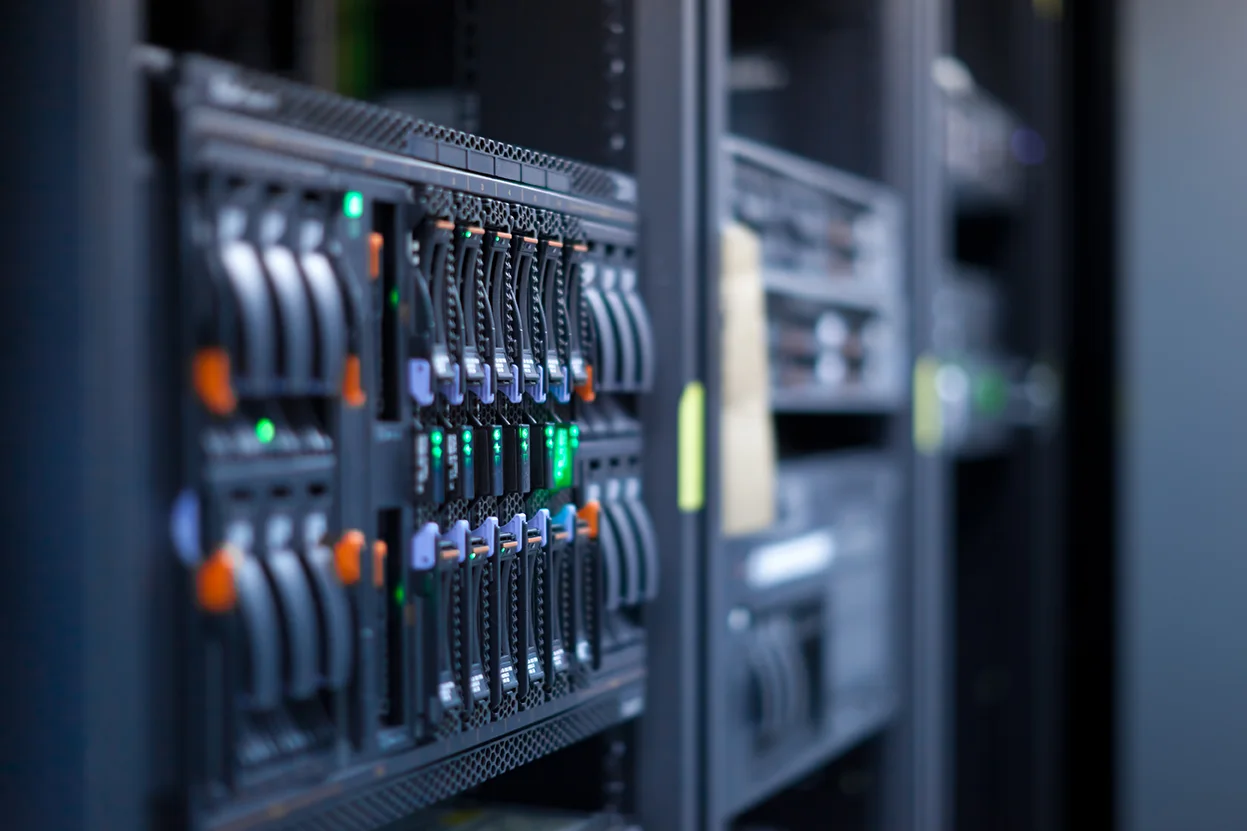An uninterruptible power supply (UPS) is essential for data centres to ensure the ongoing operation of the IT infrastructure. In extreme cases, power cuts can damage hardware and result in data loss.
Therefore, a UPS plays a key role in data centres, ensuring long-term functionality by bridging power cuts. At Cadolto Datacenter, we thus always offer you an optional UPS in our ready to use modules. Our experts advise you to always integrate a UPS into your data centre.
To help you decide which type of UPS is right for your data centre, here is a brief overview of the most important criteria.
Risk of power cuts: the situation in Germany
Even technologically advanced industrial nations such as Germany are not safe from power cuts. They can happen at any time without warning and for numerous reasons. Stormy weather can be enough to cause damage to the grid, which can result in a short-term or longer power cut.
Continuing with the example of Germany: blackouts are widespread power cuts, they are very rare in Germany. However, small power cuts are not uncommon. The latest research by the Federal Network Agency (as of January 2024) shows that a power cut in 2020 usually lasted around 10 minutes and 44 seconds.
Numbers like these may seem pretty small at first glance. However, even a short power cut like this can cause serious damage. A UPS can protect data centres from this.
Note:
Even in industrialised nations like Germany, people are not protected from power cuts. Power cuts can cause significant damage. Integrating a UPS into your data centre can bridge the time until power from the grid is restored.
What UPS systems for data centres are there?
The following three main aspects must be considered when choosing a UPS system for a data centre: level of uptime, scalability and backup time.
The level of uptime determines how the UPS is integrated into the data centre infrastructure. Different backup concepts such as N+1 and 2N are used here for different requirements.
Scalability is particularly important as the data centre expands incrementally. A modular UPS system offers the advantage of lower initial investment and operating costs and enables efficient, environment-friendly operation.
The backup time of a UPS system determines how long the UPS can power the data centre in the event of a power cut. Usually, 5 to 15 minutes are enough to bridge the time until an emergency generator is up and running, or to shut down the servers in a controlled manner to avoid damage and data loss.
How to ensure the correct size of UPS for a data centre
Ensuring the correct measurements of a UPS in a data centre is fundamental for the smooth, efficient functioning of the IT infrastructure. In addition to the level of uptime, scalability and backup time, other important factors should be taken into account when sizing.
The expected load is also a decisive factor. It should not only cover current, but also future electricity needs. The UPS should cover peak loads and offer enough capacity for future growth. As Cadolto Datacenter’s modular design enables each module to be equipped with its own UPS, very good output capacity is provided that will even cover future expansion of the data centre.
Compatibility with existing and future technology is also important. The UPS must be able to work with the current technology and planned technology upgrades.
The ideal size and technology offered by the UPS depends upon the specific use of the data centre. Some data centres require high levels of backup and fault tolerance, while others place more emphasis on energy efficiency. A thorough analysis of the data centre’s needs and goals will help determine the most suitable UPS solution.
Ultimately, optimal sizing depends upon the specific needs of each data centre and the services and applications hosted within it. Getting professional advice from an expert can be very helpful. The Cadolto Datacenter team of experts will be happy to assist you.


